Posted by Debra Freedman, Ph.D., Food Protection and Defense Institute
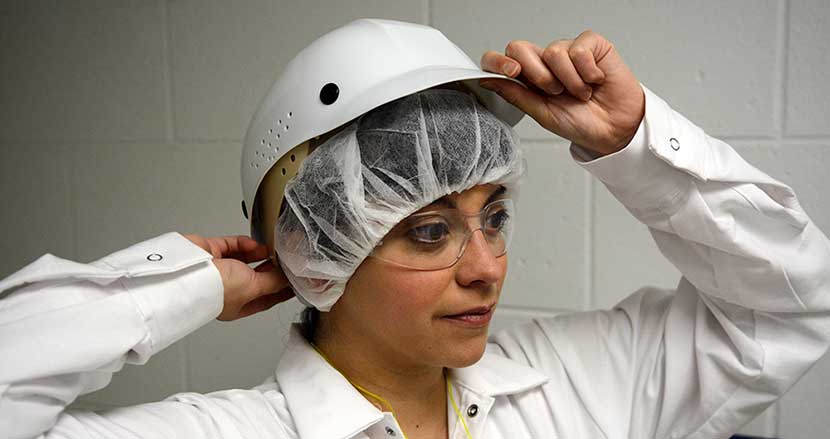
At a time when the world’s food supply remains fragile and unpredictable, a new generation of food defense professionals is emerging. Many food professionals are taking on this role for the first time or with limited experience. Others lack historical knowledge that left with colleagues during the great resignation.
These employees might have experience with food safety. But food defense is an entirely different field. For these leaders to be successful, they must understand the difference between food safety and food defense, the importance of a food defense culture, and have the training and skills needed to become a food defender.
Food Safety vs. Food Defense
The goal of both food safety and food defense is to keep unwanted substances out of food, but it’s important to understand the difference between the two.
Food safety involves the handling, cooking, and storing of food in a manner that prevents foodborne illness. This typically means protecting food from unintentional contamination by microbial and chemical contaminants. Food safety is recognized as a global concern. Generally, food and public health agencies investigate food safety issues and regulations have similarities across countries at an international level.
Food defense focuses on protecting food from intentional adulteration through prevention, protection, mitigation, response, and recovery of the food system from intentional acts of adulteration. Food defense extends from simple food fraud, also known as Economically Motivated Adulteration (EMA), to intentional adulteration with the intent to cause wide-scale public health harm.
In a food defense situation, a crime occurs, prompting law enforcement—including the FBI— to investigate. There are no standard practices concerning food defense across the world and regulation is new, though the Food Safety Modernization Act has initiated change and is causing standardization of practice.
Building a Food Defense Culture
As with food safety culture, all employees in a food manufacturing facility must understand their role in building a food defense culture. From the frontline worker at an actionable process step to Quality Assurance, to Engineering, to Human Resources, to the CEO, everyone needs to realize their role in the food defense culture and when to say something if and when they see something.
Consider your role and what you might do to help prevent food defense incidents from happening. Let’s look at an example.
In a food processing facility, an employee saw dirt on a food product. There was no reason why dirt would be on the food product at that point in the production process.
Why was it there and where could it have come from? Who would get involved in reporting and investigating this incident?
In this case, the employee went directly to the supervisor and reported seeing the dirt on the food product. The supervisor reported the incident to the food safety team, which coordinated with the food defense team to investigate. Because of the suspicious nature of the adulteration, local law enforcement and FBI were called in to investigate the incident.
As a result of the investigation, it became clear an angry and disgruntled frontline worker brought in dirt from the parking lot to throw on the food product. The food processing facility recalled over 55,000 pounds of product and lost more than $200,000 because of product damage, customer claims, disposal of product, and other fees.
Each employee whether frontline worker, supervisor, or member of the food defense team played a role in apprehending this inside attacker. Whatever your role in your facility, you know its processes better than anyone else. Here are some examples of when it may be appropriate to say something:
- A person you don’t recognize is walking around or through the facility
- Unescorted visitors
- Unsecured areas or propped open doors that should be closed
- An employee or contractor in an area where they don’t belong
- A co-worker who is acting unusually or suspiciously
- Anyone bringing in personal items that don’t belong in the processing areas
- Any threats a person makes to the product or company, or is acting in anger, and
- Any ripped bags, or ingredients where they don’t belong, or just don’t look right.
Following protocols and being aware is key to maintaining a food defense culture. It is imperative that all employees know the chain of command and, specifically, who to contact and inform should they notice something unusual or out of the ordinary anywhere in their facility.
Becoming a Food Defender
Are your employees prepared to think through how to respond if they see or notice something out of the ordinary? Do your workers understand their role in food defense? How can you best train employees in food defense awareness?
The Final Rule for Mitigation Strategies to Protect Food Against Intentional Adulteration of the Food Safety Modernization Act, also known as the Intentional Adulteration (IA) rule of FSMA, requires FDA-registered food manufacturing facilities to protect the food system from intentional adulteration intended to cause wide-scale public health harm.
There are several training requirements with respect to the IA rule. First, food manufacturing facilities must have Food Defense Qualified Individual/s, or FDQI/s, to perform key activities required by the IA rule. Specifically, employees responsible for writing the parts of a food defense plan (e.g., vulnerability assessment, assignment of mitigation strategies, plan reanalysis) must complete the appropriate topical training to perform the task according to regulation and guidance.
Second, the IA rule requires that employees who work at actionable process steps must have:
- education, training, and necessary experience to perform their responsibilities,
- knowledge of the mitigation strategies at your actionable process step, and
- training in food defense awareness.
The success of the Food Defense Plan rests on training, communicating, and working together across functions to assure intentional adulteration does not occur at your facility. Training is an integral part and provides the base understanding that builds community and promotes an environment where all employees strive to protect the food supply.
Intertek Alchemy offers food defense training through its Zosi Learning to help all employees prevent intentional food adulteration events. The Food Protection and Defense Institute of the University of Minnesota – the leading Food Defense authority– has partnered exclusively with Zosi to deliver these courses across three levels: manager, supervisor, and frontline worker.
About Debra Freedman
Debra Freedman, Ph.D., is the Director of the Food Protection and Defense Institute and an Education Program Specialist for the University of Minnesota’s College of Veterinary Medicine.


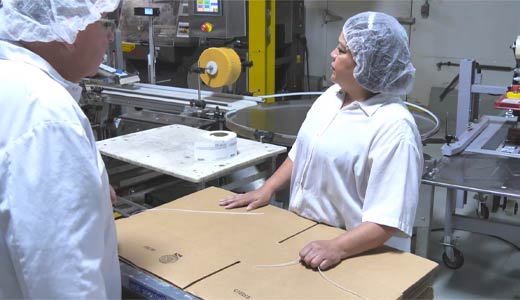 Food Defense in 15
Food Defense in 15
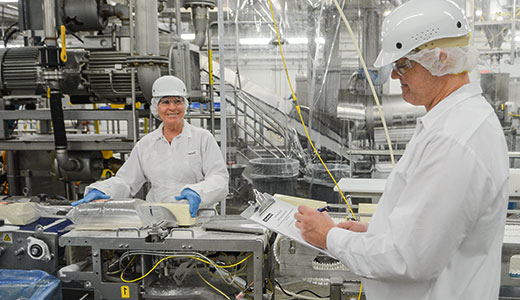 Food Defense Supervisor Awareness
Food Defense Supervisor Awareness
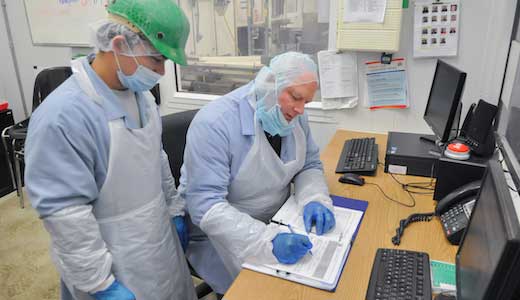 Food Defense Manager
Food Defense Manager
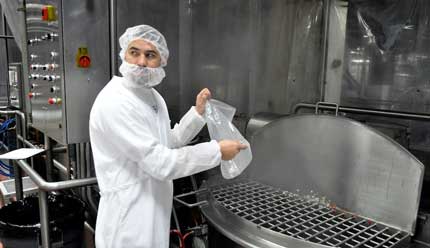 SQF Practitioner – Risk Management: Food Defense Program
SQF Practitioner – Risk Management: Food Defense Program

